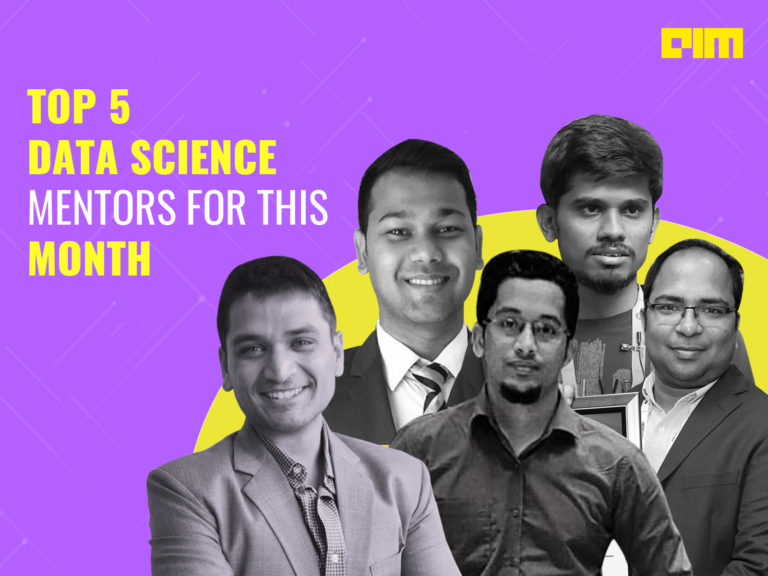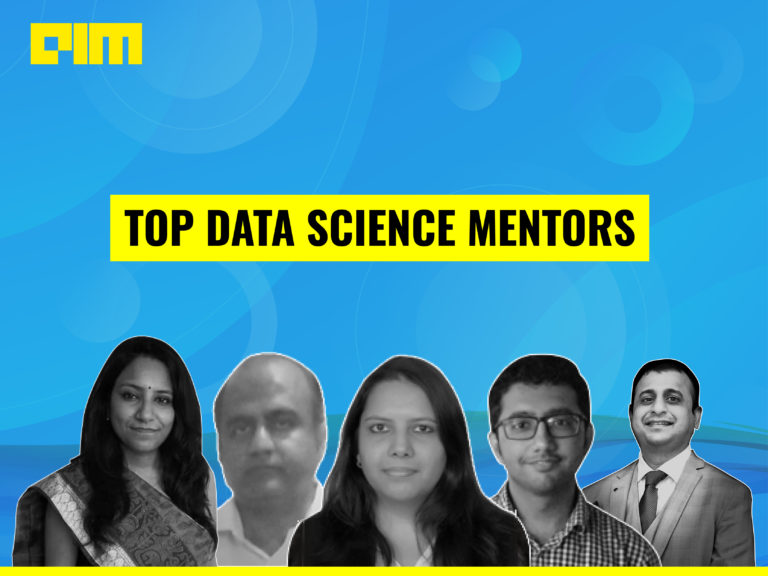It is a question that has often befuddled many aspiring professionals who are looking to enter the data science field. What should one do? Dive into a self-paced Python or R course, or follow a curated data science-related curriculum which provides a good base in analytical and quantitative techniques?
However, there is a new trend gaining momentum in data science education finding a senior industry professional who is also passionate about mentoring and can give valuable tips.
Workplace mentoring has become the norm in many enterprises and over the last two decades, many organisations have started formal mentorship programmes to help freshers cross-over or build skills in a specific area. There is a similar trend in data science education where ed-tech startups hire senior industry veterans who can give one-on-one guidance about projects, courses and career advice.
These mentors are usually available for 30-minute online sessions with students and help them set their target learning goals and discuss how to achieve them in an optimal manner. These mentors also answer subject matter questions, provide feedback on projects, and career advice. Most members in the data science community want to help people starting out both technically and with career guidance.
Why Mentoring Is Crucial In Data Science
- Mentoring bridges the knowledge gap, improve their skills and the understanding of using data science for business.
- It also allows students to build a relationship and test his/her work readiness before embarking on a full-time job. Both mentorships and internships work in a similar way — they act like a bridge programme, enabling students to retool according to the industry requirements.
- Mentorship is also beneficial for both sides — students gain valuable tips and understand how to move into these careers and mentors get a talent pool of keen, industry-ready graduates. For most companies, mentorships can act as a first filter for data-centric roles.
- Most newbies are unclear about the role expected of them. Mentors can explain how they can fit into the data science team and how their analytics efforts will pay off in the organisation.
- Another viewpoint is that the market is flooded with candidates who have the basic skills and a modest portfolio of projects. While this means the pool for entry-level candidates is increasing, it also gives a chance to organisations to be picky with the choice of candidates. In this scenario, mentorship can give candidates a definitive edge.
- Recruiters and data science leaders reveal that the field has become so competitive that it takes more than just a bunch of basic skills to get off the ground. In fact, guidance and input from an experienced industry member or senior can help candidates level up and dish out industry-ready production code.
- While nano degrees are good, it won’t help one become employable in 2018 or beyond. And that’s why mentorship component plays a pivotal role in improving your chances of landing a suitable position in the data analytics field.
- A key reason why mentorship-based programmes work well is that candidates won’t get stuck in the MOOC cycle wherein they have the same learning path or the cookie cutter approach as any other candidates. For example, Python > Pandas > sklearn > SQL and this won’t help you beat the competition. It helps to have a mentor who can help you gain more credibility and traction in the data science job market.
How Does Mentorship Work?
Usually, ed-tech firms in India look for experienced industry professionals who can work with young aspirants or professionals on a weekly basis. The best way is getting experts to work with a group of students on an industry project and in return, mentors are paid a small fee. Globally, the idea of income share is also gaining ground. Income share works in a way where the mentor gets a portion of the mentee’s salary when he/she lands a job. So there is no upfront cost involved in the process. Jeremie Harris, co-founder of SharpestMinds, a programme that connects aspiring candidates with senior data scientists and allows them to get mentored free until the candidate lands a job revealed the percentage of income share doesn’t exceed 9 percent.



















































































